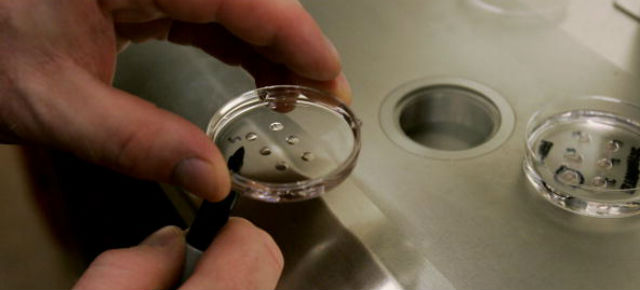It’s an unprecedented feat: tweaking the genomes of human embryos. In a groundbreaking move, Chinese researchers have officially done it, but the announcement comes amid a whole bunch of ethical fracas.
The technique, called CRISPR, seeks out genes that could cause problems like inherited diseases. CRISPR splices DNA, replacing the trouble gene with different molecules, potentially neutralising the threat before birth.
This is a groundbreaking accomplishment, but at best, the practice is not ready for primetime, and at worst it’s downright controversial. Opponents argue that embryo editing is dangerous, that healthy genes might inadvertently be changed, or that embryo editing can have unforeseen effects on incoming generations.
Lo and behold, a recent study published in the journal Protein & Cell confirmed everybody’s worries: Scientists at Sun Yat-sen University tested CRISPR on human embryos, in an effort to modify a gene that causes a deadly blood disease. The technique’s been used in animal embryos and adult human cells, according to Nature, but this is the first published study that deals with human embryos. The experiment did not go off without a hitch.
The researchers tried to use CRISPR to edit a gene called HBB, which encodes a protein whose mutations can trigger beta thalassaemia, the fatal blood disorder that was of the researchers’ interest.
However, CRISPR often missed its target and stuck DNA in the wrong parts of the genome, which could cause new diseases, not treat old ones. And of the 86 embryos used in the experiment, only 28 saw DNA successfully spliced, and but a handful of those were shown to contain the new genetic content.
(Worry not, those embryos from the study weren’t on track to form actual humans. They started as single in-vitro eggs that each had two sperm sending them their DNA, and thus the embryos naturally stopped growing in the early stages.)
“If you want to do it in normal embryos, you need to be close to 100 per cent,” lead researcher Junjiu Huang told Nature. “That’s why we stopped. We still think it’s too immature.” So do a lot of other people.
[Nature via National Geographic ]
Picture: Getty
